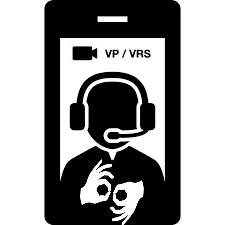Detention – whether in jail or prison – can be dangerously isolating. For Deaf or hard of hearing (“DHOH”) people it can be devastating. And encounters between DHOH people and law enforcement can be confusing at best; fatal at worst. CREEC has represented DHOH individuals at each stage of this process, including participation in protests, arrest, jail detention, and incarceration in prison.
If you or someone you know has experienced discrimination by prison, jail, or law enforcement authorities because they were Deaf or hard of hearing, we encourage you to get in touch with us.
In earlier cases, for example, CREEC represented a Deaf man arrested and detained at the Denver County Jail for a month with no interpreter, and a woman who was a crime victim, denied interpreters for a series of investigative interviews with police.
We are currently working on three cases addressing discrimination against Deaf or hard of hearing people in prison: Rogers v. Colorado Department of Corrections, Trivette v. Tennessee Department of Correction, and Disability Law Colorado v. Colorado Department of Corrections
Rogers v. Colorado Department of Corrections
In late 2019, CREEC and our clients and experts got a court order requiring the Colorado Department of Corrections to make videophones available for Deaf prisoners and prisoners who have Deaf friends or family. Rogers v. Colorado Dep’t of Corr., No. 16-CV-02733-STV, 2019 WL 4464036, at *3 (D. Colo. Sept. 18, 2019).

Videophones are the modern and most common mode of telecommunication for Deaf people. As the name suggests, videophones are essentially telephones with a video display, capable of simultaneous two-way interactive video and audio for communication between people in real time. They thus permit Deaf people whose native language is American Sign Language (ASL) to communicate in that language. The Colorado Department of Corrections refused to provide videophones, forcing Deaf prisoners to use TTYs, a 60-year-old technology that requires Deaf people type and read responses using a teletypewriter device.
Not only did this force Deaf people to communicate in what is essentially a foreign or at least second language, it also eliminated ASL grammar. Videophones permit deaf people to convey emotion, mood, tone, and affect, which cannot be conveyed or perceived using the TTY.
This case started when Bionca Rogers – a prisoner in the Denver Women’s Correctional Facility whose mother is Deaf – filed a lawsuit pro se challenging CDOC’s refusal to permit her to call her mother by videophone. CREEC joined the case a year later and added four Deaf prisoners as plaintiffs. Following another two years of litigation, on September 18, 2019, the court granted summary judgment in Plaintiffs’ favor, ordering CDOC to provide them access to videophones. A Consent Decree entered in early 2020 required videophones be available to all Deaf prisoners and prisoners with Deaf friends or family.
Relevant documents:
- Amended Complaint
- Opposition to Motion to Dismiss
- Plaintiff’s Motion for Summary Judgment
- Plaintiff’s Reply in Support of Motion for Summary Judgment
- Plaintiffs’ Opposition to Defendant’s Motion for Summary Judgment
- Plaintiffs’ Opposition to Motion to Dismiss for Mootness
- Plaintiffs’ Post-Hearing Brief (more on mootness)
- Summary Judgment Order
- Order Denying Defendant’s Motion for Reconsideration
- Consent Decree
Trivette v. Tennessee Department of Correction
In March, 2020, CREEC and Disability Rights Tennessee (DRT) filed suit against the Tennessee Department of Correction in a case similar to but broader than Rogers: it demanded access to videophones and challenged other forms of discrimination against Deaf and hard of hearing people in TDOC’s custody. Despite repeated advocacy by DRT, TDOC has, for years, systematically and repeatedly denied Deaf and hard of hearing prisoners qualified sign language interpreters during critical communications involving medical care, classification, religious services, and optional and mandatory educational classes. As a result of this unlawful denial, Deaf and hard of hearing people in TDOC custody regularly do not have access to adequate health care or to critical programs and services designed to prepare them for successful reentry.
In October 2020, CREEC and DRT moved for a preliminary injunction requiring TDOC to provide videophones. That motion is still pending.
In November 2020, the Court denied TDOC’s motion to dismiss and granted Plaintiffs’ motion to amend, holding that DRT had standing to sue TDOC on behalf of DHOH prisoners, and that the Complaint could be amended to add two additional prisoners as plaintiffs. Trivette v. Tennessee Dep’t of Correction, No. 3:20-CV-00276, 2020 WL 6685557 (M.D. Tenn. Nov. 12, 2020).
Relevant documents:
- Amended Complaint
- Plaintiffs’ Opposition to Motion to Dismiss
- Plaintiffs’ Motion for Preliminary Injunction
- Plaintiffs’ Reply in Support of Preliminary Injunction
Disability Law Colorado v. Colorado Department of Corrections
In March 2021, CREEC and the Civil Rights Clinic at the University of Denver Sturm College of Law represented Disability Law Colorado in filing a lawsuit against the Colorado Department of Corrections. The lawsuit alleges that CDOC violates the Americans with Disabilities Act (ADA) by (among other things) failing to provide sign language interpreters for medical appointments, classes, and other significant interactions; failing to provide equal access to notifications and alarms; and failing to provide and maintain hearing aids.
This lawsuit is the result of a two-year investigation spearheaded by student attorneys at the CRC who reviewed thousands of pages of documents and conducted over 120 interviews, first in person and later – after the pandemic made in-person visits impossible – by video conference technology. CREEC paralegal Kyle Neumann, who is Deaf and bilingual in English and ASL, also conducted many ASL interviews with Deaf incarcerated people.
